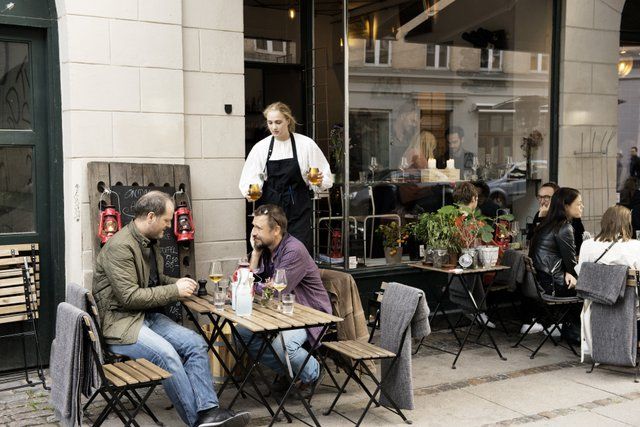It’s been a beautiful summer’s day in Copenhagen, and a late meal under still sun-kissed blue skies seemed like the perfect way to finish it off.
A light breeze gently caresses your shoulder … no, that’s the owner of the restaurant telling you that your entire table must embark inside on what has been the warmest day of the year so far.
Apparently, a new law forbids outdoor dining after 22:00 on weekdays across most of Copenhagen.
You end up finishing your meal packed like eels in a sauna.
No red bloc/blue bloc divide
Last night, a narrow majority on the Technical and Environmental Committee at City Hall passed a motion to ban outdoor dining after 22:00 Sunday through to Thursday.
As is becoming customary in Danish politics, there was no red bloc/blue bloc pattern to the divide. SF, Socialdemokratiet, Alternativet and Konservative backed the plans, with Enhedslisten, Radikale and Venstre opposing them.
“At SF, we think it’s fair that you can go to bed at 10 on a weekday and get eight hours of sleep before work, even if you live near a bar. Sleep is hugely important for our health,” committee member Astrid Aller reasoned to TV2 Kosmopol.
“It’s not because we’re closing the nightlife – people can just go inside. But we must find a balance.”
Consultation before any actual law
Three areas are exempt from the new rules: Kødbyen, Nyhavn and Metropolzonen, the city centre zone circling Rådhuspladsen, the town hall square.
The proposal will now be referred to consultation, where Aller expects “a lot of consultation responses”, before returning to the committee again for final approval.
Meanwhile in related news, today’s Berlingske reports that Copenhagen Municipality has lost 3 billion kroner in poor investments over the last fiscal year.














